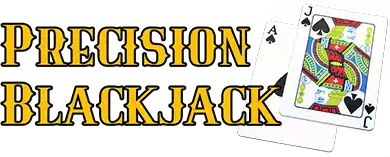- Posted on
- By webchiadmin
- In Expert
- Leave a comment

The Science Behind Card Counting: Is It Worth the Risk?
The Mystique of Card Counting
Card counting has long been shrouded in mystique, thanks to its portrayal in movies and popular culture as the ultimate way to beat the casino at blackjack. The idea of turning the tables on the house and walking away with substantial winnings is undeniably appealing. However, while card counting can provide a significant edge, it’s not without its risks and challenges.
In this article, we’ll delve into the science behind card counting, exploring how it works, why it’s effective, and the potential pitfalls that come with using this advanced strategy. We’ll also examine whether card counting is truly worth the risk for today’s blackjack players, especially in an era where casinos have implemented various countermeasures to detect and prevent it.

The Basics: How Card Counting Works
Card counting is a strategy that involves tracking the ratio of high to low cards that remain in the deck. The premise is simple: certain cards are more advantageous to the player, while others favor the dealer. By keeping a running count of these cards, players can adjust their bets and playing decisions to capitalize on favorable situations.
Why Card Counting Works
In blackjack, the distribution of cards plays a crucial role in determining the outcome of the game. High cards (10s, face cards, and Aces) are beneficial to the player because they increase the likelihood of hitting a natural blackjack (21) or achieving strong hands that can beat the dealer. Low cards (2-6), on the other hand, favor the dealer, especially when the dealer must hit on a hand.
Card counting works because it allows players to anticipate the distribution of remaining cards in the deck. When the deck is rich in high cards, the player has a statistical advantage and can increase their bets accordingly. Conversely, when the deck is rich in low cards, the player should bet conservatively or even sit out to avoid losing money.
The Science of Card Counting: Understanding the Systems
Several card counting systems have been developed over the years, each with varying levels of complexity and effectiveness. Let’s explore some of the most popular systems and the science behind them.
- The Hi-Lo System
The Hi-Lo System is one of the most widely used and easiest card counting methods. It assigns point values to cards based on their rank:
- Low cards (2-6): +1
- Neutral cards (7-9): 0
- High cards (10, face cards, and Aces): -1
As cards are dealt, the player keeps a running count by adding or subtracting the appropriate values. A positive count indicates that more low cards have been dealt, leaving a higher proportion of high cards in the deck. Conversely, a negative count suggests that the deck is rich in low cards.
- True Count: To account for multiple decks in play, players convert the running count into a “true count” by dividing the running count by the number of decks remaining. The true count provides a more accurate assessment of the deck’s composition and guides the player’s betting and playing decisions.
- The KO System (Knock-Out)
The KO System is an unbalanced card counting method, meaning that the count doesn’t start at zero and doesn’t end at zero after all cards are dealt. This system simplifies the process by eliminating the need to convert the running count into a true count.
- Card Values: The KO System assigns values as follows:
- Low cards (2-7): +1
- Neutral cards (8-9): 0
- High cards (10, face cards, and Aces): -1
The KO System is particularly popular among beginners because it’s easier to learn and apply than systems that require true count calculations. However, it’s slightly less accurate than more complex methods.
- The Omega II System
The Omega II System is a more advanced and balanced card counting method that offers greater precision but requires more effort to master.
- Card Values: The Omega II System assigns different values to different cards:
- 2, 3, 7: +1
- 4, 5, 6: +2
- 9: -1
- 10, face cards, and Aces: -2
- 8: 0
Because the Omega II System is more complex, it provides a more accurate count but demands greater concentration and skill. Players using this system must also convert the running count to a true count when multiple decks are in play.
The Benefits of Card Counting
Card counting, when done correctly, can provide a substantial edge over the house, reducing the casino’s advantage to the point where the player can consistently turn a profit. Here are some of the key benefits:
- Increasing Betting Efficiency
By accurately predicting the composition of the deck, card counters can adjust their bets to capitalize on favorable situations. For example, when the count is high and the deck is rich in 10s and Aces, players can increase their bets, knowing they have a better chance of winning.
- Making Informed Decisions
Card counting allows players to make more informed decisions about when to hit, stand, double down, or split. For example, if the count is high, a player might choose to double down more frequently, knowing that the odds of drawing a high card are increased.
- Reducing the House Edge
In a standard game of blackjack, the house edge is typically around 0.5%. However, skilled card counters can reduce this edge to zero or even gain a slight advantage, making blackjack one of the few casino games where the player can theoretically come out ahead in the long run.
The Risks and Challenges of Card Counting
While the benefits of card counting are clear, it’s important to understand the risks and challenges associated with this strategy. Card counting is not a guaranteed path to riches, and it requires significant skill, discipline, and discretion to be effective.
- Detection and Countermeasures
Casinos are well aware of card counting and have implemented various countermeasures to detect and deter counters. These include:
- Frequent Shuffling: Some casinos use automatic shuffling machines or employ frequent shuffling by the dealer to disrupt the card counter’s ability to keep an accurate count.
- Deck Penetration: Casinos may limit the number of cards dealt before reshuffling (known as deck penetration). Poor deck penetration reduces the effectiveness of card counting, as fewer cards are dealt before the count becomes unreliable.
- Surveillance and Pit Bosses: Casinos use surveillance systems and pit bosses to monitor players for suspicious behavior. If a player is suspected of counting cards, they may be asked to leave, banned from the casino, or subjected to additional scrutiny.
- The Challenge of Staying Undetected
To succeed as a card counter, players must not only master the technique but also remain undetected by the casino. This requires a combination of skill, acting ability, and discretion:
- Camouflage Betting: Card counters often use “camouflage betting” to avoid detection. This involves varying bet sizes in ways that don’t raise suspicion, such as betting small amounts even when the count is favorable or intentionally losing a few hands to throw off the casino staff.
- Disguise and Behavior: Experienced card counters may adopt certain behaviors or disguises to blend in with other players. This might include acting as though they’re new to the game, engaging in casual conversation with the dealer, or appearing distracted.
- Legal and Ethical Considerations
While card counting is not illegal, it is frowned upon by casinos, and being caught can lead to being banned or blacklisted. Additionally, there is an ethical debate about whether card counting constitutes “cheating” or simply smart play. Players should be aware of the potential consequences and make informed decisions about whether to pursue this strategy.

Is Card Counting Worth the Risk?
The question of whether card counting is worth the risk depends on several factors, including your skill level, tolerance for risk, and long-term goals as a blackjack player.
- For Serious Players
For serious players who are willing to invest the time and effort to master card counting, the potential rewards can be substantial. Card counting offers a way to gain an edge over the casino and turn blackjack into a profitable endeavor. However, it requires a high level of discipline, discretion, and the ability to handle the pressures of high-stakes play.
- Precision Blackjack: The Precision Blackjack system is an example of a leading tutorial betting system that incorporates advanced card counting techniques. It’s designed for players who are serious about taking their game to the next level and are prepared to commit to the rigorous demands of card counting.
- For Casual Players
For casual players, the risks and challenges of card counting may outweigh the potential benefits. If your goal is to enjoy the game and have fun, focusing on basic strategy and responsible bankroll management may be a better approach. Card counting requires constant focus and can detract from the enjoyment of the game if you’re not fully committed to the strategy.
- For Online Play
Card counting is largely ineffective in online blackjack games due to the use of random number generators (RNGs) and frequent reshuffling. If you primarily play online, pursuing card counting may not be worth the effort, as the conditions needed for it to be effective simply don’t exist in most online environments.
Conclusion: The Verdict on Card Counting
Card counting is one of the most powerful strategies in blackjack, offering players a way to gain an edge over the house and potentially turn a profit. However, it’s not without its risks and challenges. The effectiveness of card counting depends on the player’s skill level, the casino’s countermeasures, and the player’s ability to stay undetected.
For serious and disciplined players, card counting can be a highly rewarding strategy, particularly when combined with systems like Precision Blackjack. However, for casual players or those who prefer online play, the risks and demands of card counting may outweigh the benefits.
Ultimately, whether card counting is worth the risk is a personal decision that depends on your goals, commitment, and willingness to navigate the complexities of this advanced strategy. If you choose to pursue card counting, do so with a clear understanding of the challenges ahead and a commitment to mastering the art of outsmarting the casino.
Good luck at the tables, and may your strategic calculations lead to big wins!



No comment yet, add your voice below!